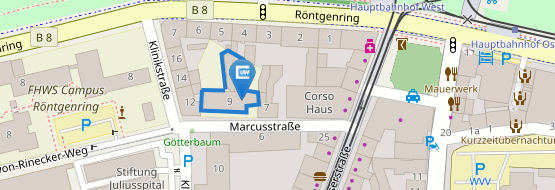Research Training Group 1253/2 (Emotions)
Welcome to the homepage of the Research Training Group RTG 1253/2:
"Processing of affective stimuli: from the molecular basis
to the emotional experience"
(supported by the DFG by federal and Länder funds)
The Research Training Group (RTG) “Processing of affected stimuli: from molecular basis to the emotional experience” aimed at identifying important mediators and moderators influencing the processing of affective stimuli. The cooperation of renowned research groups from philosophy, psychology, psychiatry, neurology, anatomy, and physiology allowed the RTG’s doctoral students to develop excellent and internationally visible interdisciplinary research projects within the Affective Sciences. Based on the realized interdisciplinary approach and the expertise of the RTG researchers the projects of the RTG converged on three levels, each addressed by human, clinical and animal research: (1) self-regulation, self-control and dynamic of emotional processes, (2) emotional determinants of normal and pathological behavior, and (3) neurobiological basis of emotional reactions (especially serotonergic and dopaminergic systems). The philosophy project provided a theoretical framework for the empirical-experimental projects, and itself focuses on the epistemological, anthropological and ethical dimension of research on emotion.
The RTG specifically focused on identify interactions between these levels. This was supported by an intense and interdisciplinary supervision of the doctoral students by doctoral committees with three members from different research groups. Additionally, the RTG provided a platform for the career development of its students. Weekly seminars ensured frequent interaction between all participating members, annual Summer schools allowed for exchange and networking with word international scholars and special workshops allowed them to gain interdisciplinary, independent and innovative academic skills sets. Graduation will be realized within the Graduate School of Life Sciences, which also allows a fast-track dissertation.
Until its date of conclusion in 2015, the RTG directly funded 31 PhD student stipends, hosted 35 additional PhD students (funded externally) and employed 85 students for variable lengths of time. In summary, 318 publications associated to the RTG were written by members and students during its funding period, 20 of which were awarded internally with a publication award.

